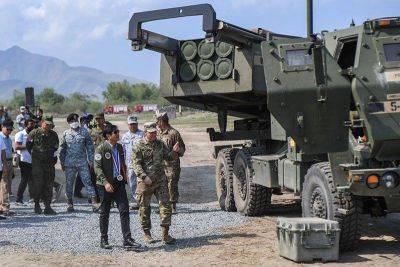A Brief History of U.S.-Philippine Relations | TIME
In China last week, Philippine President Rodrigo Duterte announced his military and economic “separation from the United States.” America “had lost,” he said to applause in Beijing’s Great Hall of the People.
Duterte’s beef with the U.S. spans historical atrocities and picayune slights — such as being denied a visa to visit his college girlfriend. Here is some more of the shared history that has shaped U.S.-Philippine relations
1. The Moro Massacre
When Obama nixed a meeting with Duterte on the sidelines of last month’s ASEAN summit, the international press focused on how POTUS would take being called a “son of a whore.”
Lost in the furor, though, was Duterte’s big swing: the U.S., he said, hadn’t apologized for the 1906 Battle of Bud Dajo, in which American soldiers slaughtered as many as 1,000 Moro — Philippine Muslims — holed up in an extinct volcano.
More recent atrocities have been committed against the Moro. Under dictator Ferdinand Marcos, who ruled from 1965 to 1986, soldiers and state-sponsored paramilitary massacred hundreds of Moro.
However, Richard Chu, an associate professor at the University of Massachusetts Amherst who specializes in Philippine colonial history, tells TIME that by being selective about the atrocities he recounted, Duterte would “be able to at least get the attention of the U.S. government, hopefully resulting in more equitable treatment.”
2. 300 Years in the Convent, 50 in Hollywood
The Philippines became the first U.S. colony after Spain ceded the islands for $20 million in 1898. Then began a process U.S. President McKinley described as “benevolent assimilation.”
Aileen Baviera, a professor of political science at the University of the Philippines Diliman, tells TIME that U.S. colonialism is viewed much more positively than Spanish colonialism because of its contributions to public health, education and political structure, but that negative aspects related to war and repression had been muted “in large part because the early discourses were shaped by the Americans themselves through media and public schools.”
Baviera added that today Filipino historians were more cognizant that “American colonial policies supported







